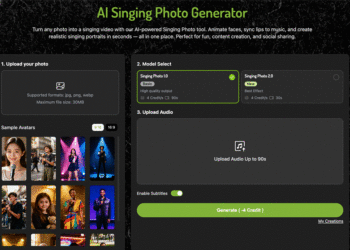Dek: From time checks to file conversions, UK users are turning to lightweight browser utilities instead of bulky apps.
Brits are rethinking how they handle daily digital tasks. Instead of checking the time in UK through yet another downloaded app, many are turning to browser-based tools that do the job instantly. These quick utilities promise fewer distractions, no updates, and better privacy, all straight from the browser.
Featured Snippet (43 words):
Thousands of UK users are moving from apps to browser tools because they’re faster, safer, and don’t need installations. Browser utilities open instantly, use less storage, and offer privacy advantages, making them a smarter choice for everyday online tasks across devices.
What’s Behind the Shift?
The move from apps to browser tools reflects changing digital habits in the UK. Many people are tired of constant app updates, intrusive permissions, and limited storage on mobile devices. Browser utilities, by contrast, open instantly in Chrome, Safari, or Edge without taking up space.
Browser Tools vs Apps: Quick Comparison
| Feature | Browser Tools | Mobile Apps |
| Installation | None required | Must be downloaded |
| Updates | Automatic in background | Frequent manual updates |
| Privacy | Fewer permissions | Often requires personal data |
| Storage | Minimal | Uses device memory |
| Speed | Opens instantly | Can take longer to load |
According to Ofcom’s Online Nation report, an authoritative source on UK digital behaviour, more than half of adults now prefer online tools that don’t require downloads. This shift highlights growing awareness around privacy and efficiency.
Users also cite convenience as a major factor. Browser tools load faster, use fewer background resources, and eliminate app fatigue, the feeling of being overwhelmed by too many downloads. With internet access nearly universal in the UK, it’s no wonder more people are switching to simple web utilities.
Which Browser Tools Are People Using Most?
Everyday browser utilities now cover everything from timekeeping to file conversion and design. They’ve become reliable, lightweight substitutes for apps that once dominated the app stores.
Here are the top categories gaining traction in the UK:
- Productivity tools: instant converters, timers, and calculators that streamline work.
- Media utilities: easy options to crop, resize, or compress files for sharing.
- Daily life tools: alarms, weather updates, and quick notes that simplify routines.
These categories include some surprising favorites. Many Britons use online converters to convert heic to jpg when transferring photos from iPhones, or to convert jpg to pdf before sending documents. Others use free design tools that let them download a heart PNG in seconds for presentations or crafts.
Such tools don’t require sign-ups, run smoothly on any device, and bypass the lag of traditional apps. For small, specific tasks, the simplicity of the browser is winning.
Are Browser Tools Really More Convenient?
Yes, and that convenience comes from how accessible they are. A browser tool works on nearly any device with internet access. Whether you’re using a phone, tablet, or laptop, the experience is the same: open a link and go.
People checking the weather in the UK no longer need to download a weather app cluttered with ads. Instead, they can bookmark a clean page that gives real-time forecasts. Similarly, users who want to set an alarm can do it straight from the browser without granting location or notification permissions.
There’s also a growing appreciation for how these tools reduce clutter. Many apps duplicate features that browsers now handle natively. For example, most browsers can already store passwords, manage notifications, and even save offline pages, cutting out the need for separate software.
Another factor is speed. Browser tools load instantly, often using lightweight frameworks that work even on slower connections. And since they’re web-based, updates happen automatically in the background without user effort.
What’s Next for Mobile App Alternatives?
As digital minimalism grows in popularity, experts predict the trend toward browser-first utilities will accelerate. Web developers are responding with “progressive web apps” (PWAs) that combine the reliability of an app with the simplicity of a website.
In the UK, this movement aligns with the broader push for sustainability and reduced device waste. Fewer apps mean less storage use, fewer updates, and longer phone lifespans. Tech analysts suggest this could redefine how users interact with technology, prioritising fast, focused tools over feature-heavy apps.
Industry watchers expect browser utilities to expand further into areas like AI-assisted writing, image editing, and cloud storage. Already, online converters, timers, and file editors are being integrated directly into browsers, blurring the line between app and webpage.
As one digital consultant noted, the modern web is “turning into an app store without downloads.” It’s fast, light, and increasingly where most users spend their time.
Why the Trend Resonates in the UK
Several uniquely British factors make this shift even more pronounced. The UK’s high mobile internet penetration and emphasis on privacy regulation, including strict adherence to GDPR, have made users more sensitive about data tracking. Browser tools, which typically store no personal data, are seen as a safer choice.
Additionally, many UK workplaces encourage BYOD (bring your own device) policies. Lightweight browser utilities simplify file sharing without needing IT approval for new app installs. For freelancers and students, this means quicker workflows and fewer compatibility issues.
And there’s the cultural factor: British users have a reputation for pragmatism. When something works better and faster, like a one-click web tool, they tend to adopt it quickly.
The Bigger Picture
The rise of browser tools represents more than just a tech preference. It reflects a changing mindset toward simplicity, privacy, and control. Apps once promised convenience, but their growing complexity has driven users to seek leaner, web-based solutions.
Browser utilities fit perfectly into that vision: fast, private, and available anywhere. Whether it’s converting photos, checking local forecasts, or setting a reminder, the browser is quietly becoming the UK’s favorite all-in-one toolbox.
David Prior
David Prior is the editor of Today News, responsible for the overall editorial strategy. He is an NCTJ-qualified journalist with over 20 years’ experience, and is also editor of the award-winning hyperlocal news title Altrincham Today. His LinkedIn profile is here.













































































